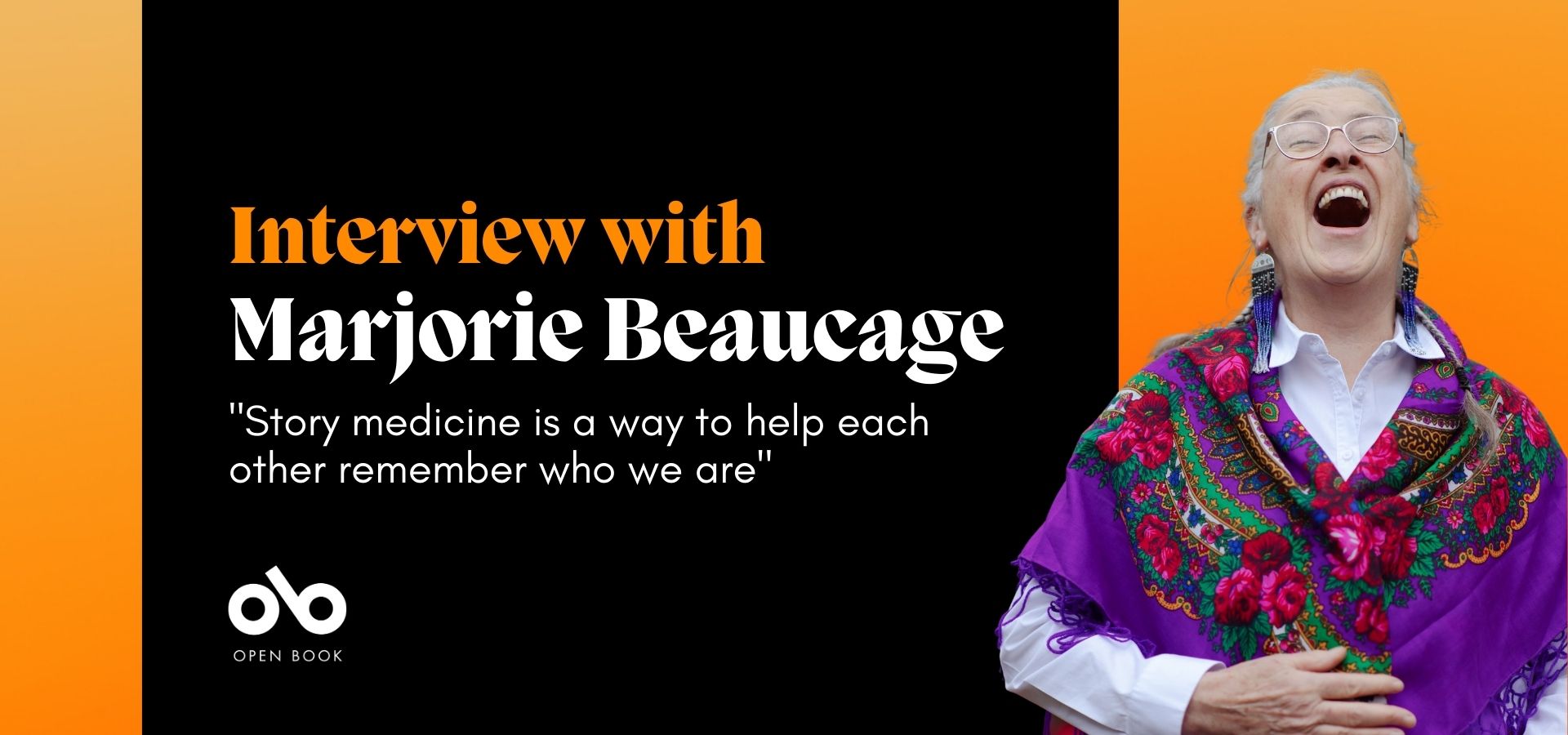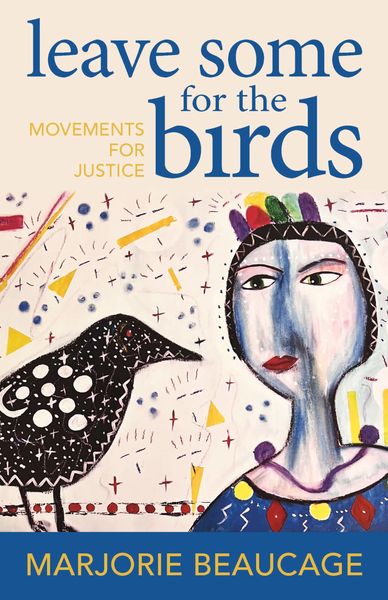Iconic Activist Marjorie Beaucage on How Circus School, Sante Fe, & De-Cluttering Lead to Her Debut Memoir
Marjorie Beaucage has spent her life telling stories and helping others tell theirs: as a teacher, community organizer, activist, and later, an acclaimed filmmaker, she has wield storytelling as a tool of healing and truth, from opposing environmental degradation to offering welcome and support for Indigenous queer youth, as in her celebrated 2017 documentary, Coming In Stories: Two Spirit in Saskatchewan.
When Beaucage was offered a spot at the Equal Justice Residency in Santa Fe, New Mexico, she decided to turn her hand to writing longform, and the result, a genre-blending poetic memoir called leave some for the birds (Kegedonce Press), is a vibrant and inspiring read from a writer whose joy, wisdom, and energy for change leap from the page.
Now in her 70s, Beaucage's trailblazing work, easy humour, and steadfast moral compass offer a blueprint for young activists finding their voices now. We're excited to talk with her about leave some for the birds today as the latest instalment in our My Story memoir interview series.
In our conversation, she tells us about how the book became a memoir without her wanting it to, about her thrice-weekly circus school lessons factored into her writing, and about why she feels people are looking for connection in our disconnected times.
Open Book:
How did your memoir project first start? Why was this the right time to tell your story?
Marjorie Beaucage:
I was in the process of de-cluttering. Two boxes of journals and several bins of articles, posters, memorabilia, buttons etc... I didn’t want anyone else going through my stuff. At the same time, three different people sent me a post about an Equal Justice Residency in Santa Fe, New Mexico. I love the desert. It is my spirit place. So I applied for a 6-week residency and got in with some help from Sask Arts to get there. When everything aligns like this, you just say yes.
OB:
Did your memoir change significantly from when you first started working on it to the final version? Was there anything that surprised you about the process?
MB:
I did not have a plan when I started except to see what was there after a whole life of seeking justice and working for social change. I have never written a book before and certainly never thought I would be doing this. I didn’t want a memoir. As I went through I saw that I had written a lot of poetry so I collected those thinking I would have a book of those. Then I started to think by the decades of my life. Movements. Seven of them. A good number. Then I started to see recurring themes and patterns so that a chronological approach was too limiting. So the movements of my life became reflections, poems, and recipes for change. Working with an editor helped me to shape and trim and contain each moment. Letting go of my working title was the most challenging until the new title arrived. Letting go opens new doors. I am grateful for the gifts that follow.
OB:
If you have written in other genres, what was different for you in writing a memoir?
Your CanLit News
Subscribe to Open Book’s newsletter to get local book events, literary content, writing tips, and more in your inbox
MB:
I have been developing my voice as a writer over time. First in journalistic writing, then editorials and commentaries and several essays published in magazines and journals and contributed chapters in several books. This feels different because it is from my inner world. I prefer to be behind the scenes or facilitating others in expressing themselves. So this is a definite shift. I hope my life lessons can encourage others to follow their own truths.
OB:
Did you use any materials, documents, interviews, or other research that became part of the writing process?
MB:
I mostly relied on my own archives. I also started to think about how to visually create something to go along with the words. I saved the covers from the journals and some written pages to create a paper quilt before burning all the rest of the journals in ceremony, transforming my words into this book. And two more collages on activism and film. My writing process was also influenced by the Santa Fe collective of artists and writers and the Spoken Word workshops I participated in while I was there. I had never spoken my poems out loud before... that extra layer of vulnerability was a threshold for me. And the Wise Fool Circus school I attended three times a week to create from my body also opened up new doorways. I am grateful to all who supported me in that time.
OB:
Personal essays, memoirs, and creative nonfiction in general have becoming particularly in demand and loved by readers in recent years. Why do you think creative nonfiction is more popular than ever?
MB:
People are looking for connection. In an age where folks are connected all day through technology, they still feel alone. Sharing our stories with each other is how we make real relations. Story medicine is a way to help each other remember who we are, to be seen and heard. We need more than a like on Facebook or a picture of where I am or what I ate.
All my relations.
_____________________________________________
Marjorie Beaucage is a Two-Spirit Métis Auntie, filmmaker, art-ivist and educator, a land protector and a water walker. Born in Vassar, Manitoba, to a large Métis/Michif family, Marjorie’s life’s work has been about creating social change, working to give people the tools for creating possibilities and right relations. She has been a Grandmother for Walking With Our Sisters; the Elder for OUT Saskatoon; and the Elder-In-Residence for the University of Saskatchewan Student Union. As a current Board Member of Chokecherry Studios, she is giving back to future art-ivists as they stand up for themselves and their community through creating art, music, writing. She just finished six short harm-reduction videos for creating possibilities of wellness with story medicine.






